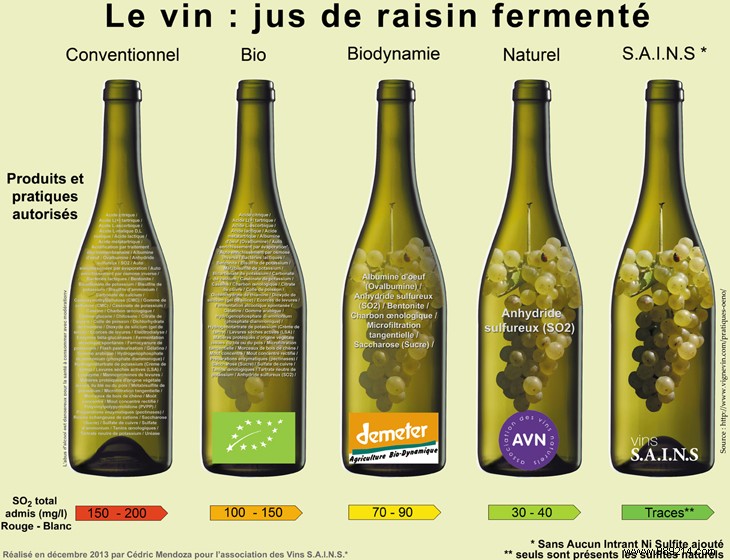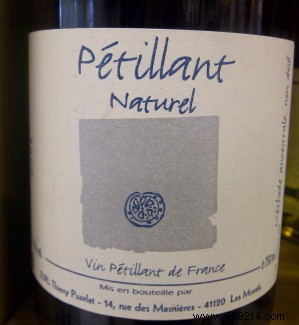If in the morning, you have violent headaches after having drunk only one or two glasses of wine at dinner, and neither paracetamol nor aspirin calms you down, you may be one of the people intolerant to sulphites , which are increasing in number. It is due either to a deficiency in sulfite oxidase, the enzyme responsible for transforming the active form of sulfite oxide into the inactive form, or to a greater sensitivity to the sulfites that have invaded our diet.
Whether we are talking about sulfite, sulfur, sulfur dioxide or SO2, it is the same substance that we ingest essentially by drinking wine since it is used for its preservation. On each bottle of wine, you will see the mention "Contains sulphites", except that no quantity is specified:the regulations impose this mention as soon as the product contains more than 10 mg/l, that's all. You should know that conventional wines (white or red) can contain 150 to 200 mg/l of SO2, while organic wines are between 100 and 150 mg/l, biodynamic wines between 70 and 90 mg/l and natural wines only contain 30 to 40 mg/l.

You don't have to be a pochtron to be intolerant to sulphites because even if the acceptable daily intake defined by the WHO is 0.7 mg per kg of weight per day, sometimes two glasses of a wine that contains a lot to exceed this level. The National Health Security Agency (Anses) indicated, in a June 2011 report, that 3% of adults exceed the acceptable daily intake of sulphites, which is not nothing.
Apart from wine, which concentrates 70% of our sulphite intake, these are also found in food additives, listed for the whole of Europe from E220 to E228, i.e. in many foods of our daily life:cold cuts, hamburger steak , seafood, beers, ciders, champagne, confectionery, jams, jellies, dried fruits, mash flakes, cereals, muesli, sauces, ketchup, mustard, canned and frozen products, soups, small cakes, crackers, etc. ..
First, it is the headache that is characteristic of sulphite intolerance. Declaring itself a few hours after the absorption of too large a dose of sulphites, nothing relieves it.
The respiratory effects are the second physical manifestation due to sulphites, and this especially if you already have a ground sensitive to asthma:it will then only get worse.
As with allergic rhinitis, the nose becomes clogged, runny and you sneeze:it is still the sulphites that are involved, even going so far as to cause you to temporarily lose your sense of smell and taste. All of these symptoms can progress to nasal polyposis.

Digestive and intestinal problems can also be observed (diarrhoea, nausea) sometimes attributed too easily and wrongly to a damaged shrimp or ouassou. Seafood has a high level of sulphites and therefore causes abdominal pain.
As is often the case, sulphite intolerance can also cause dermatoses such as flare-ups of eczema and hives.
Already, you should know that doctors and allergists have a lot of trouble diagnosing this intolerance since there is no allergy test for sulfites, which they know quite badly.
They will therefore prescribe you antihistamics, bronchodilators or corticosteroids, the latter of which may themselves contain sulfites! So be careful about using them.
Instead, try to avoid foods that contain sulphites. As wine is the main source of ingested sulphites, it is very easy to consume only organic, biodynamic (Demeter and Nature &Progrès) or, ideally, natural wines. These are made from organic grapes and are, in addition, vinified without chemical additives and with very few sulphites like those of the Association of Natural Wines, or even not at all like S.A.I.N.S. wines.
The problem is that this intolerance can appear at any age and it is very rare that it disappears...